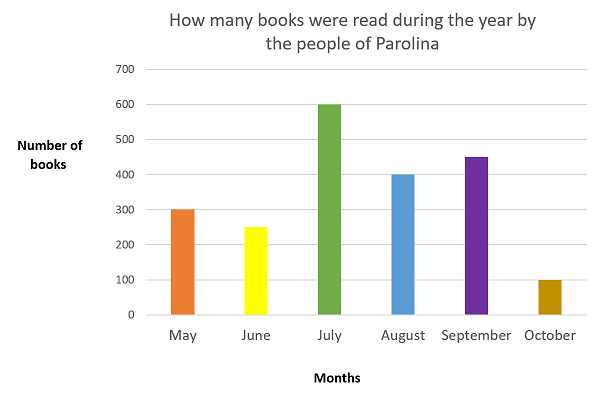The NWEA MAP 2nd grade exam assesses math and reading skills.. This computer-adaptive test, given 3 times yearly, adjusts to each child's level. Preparing familiarizes them with the format and questions, ensuring accurate results. High scores can benefit your child's education and future opportunities.
Check out our general Free MAP Practice or access PrepPacks by grade:
2nd Grade MAP Sample Questions
Let’s break down the three most popular MAP Growth tests for 2nd grade and have a look at the material and question style for each test. View our 2nd Grade MAP Sample Questions below to get an idea of what to expect on the test.
Math
The MAP Growth mathematics test consists of 40-43 questions, including word problems, number exercises, and visual displays, and the method of answering the question varies from question to question. In many questions, you will be asked to select one or multiple things on the screen or to fill in short answers. The questions include the following topics:
- Algebraic Thinking – representing numbers, solving problems, analyzing patterns
- Numbers and Operations – counting, sets, place value, base ten, fractions
- Geometry and Measurement – shapes and their properties, length of sides, using rulers and protractors
- Data – reading and analyzing data in charts
Help Your Child Prepare for Their MAP Test
Explore our MAP Practice PrepPacks that include
Realistic Simulations
PrepPacks tailored to accurate test scenarios.
Interactive Tests
Practice materials, designed to help students perform their best on their tests!
Premium Quality
Expert-crafted practice tests with accurate questions and explanations
Try this tip:
If you are asked a word problem, make sure you understand what it is asking and that you are not forgetting any part of the problem. Every aspect of the text should represent a number or operation. If you are asked a problem using images, make sure you understand what the purpose of each image is. If they represent numbers, make sure to keep track of which number each image represents.
Try this tip:
Make sure you are aware if the question is asking you to select one option or every relevant option. Also, when looking at a chart, the question may ask you for information that is not actually present. Make sure you are aware if you are trying to find something on the chart or if you need to perform some kind of operation based on something in the chart.
Reading
The reading test is designed to test your ability to analyze both literary and informational passages and concepts and answer questions about word meanings. This section includes 40-43 questions as well, generally with multiple-choice answers, and some passages may include multiple questions. The questions will usually ask you to analyze the following concepts:
Content: Identifying main ideas, locating information, drawing inferences, summarizing. Consider the following aspects:
- Literary – characters, setting, plot
- Informational – fact and opinion, following directions, data and visuals
Craft: Identifying the author’s purpose, writing style, point of view, structure, and genre. Consider the following aspects:
- Literary – literary devices
- Informational – argument
Word Meaning – roots and affixes, context clues, synonyms and antonyms
Read the following story to answer the two questions below.
Lindsay and Gretchen are twins. They wished they had a pet at home. Lindsay wanted a dog, while Gretchen thought a hamster was the best choice. Lindsay and Gretchen went to the pet store after school. There, they worked out their differences and decided together which pet to take. When they came back home with the new member of the family, their mother looked at it with surprise. Lindsay and Gretchen explained that this cute rabbit was looking at them with sad eyes, and they immediately knew it was the right pet for both of them.
Prepare Your Child for the MAP 2nd Grade Test!
Practice with the most complete studying materials including 250 sample questions, MAP math quizzes, MAP reading quizzes, two full-length MAP simulation, a comprehensive study guide, and a detailed score report to track your child's progress.
Try this tip:
Read the question before reading the passage. This way, you know what to look for when reading it. Remember that you are not timed, however, so take your time and make sure you’ve read and understood the whole passage. There may be important information even after you think you have the answer.
Here's another tip:
If there are words you are unfamiliar with, start with the ones you know and see what fits and what doesn’t. You can often eliminate answers even if you are not entirely sure what they mean.
Language Usage
The Language Usage test focuses on the ability to properly use the English Language. There are 40-43 questions that ask you to find or fix mistakes, complete sentences with missing parts, rewrite or restructure sentences, identify proper elements of writing, and other similar tasks. There may be multiple answers to choose from, words to fill in, items to rearrange on the screen, or other creative forms of answering questions. Students are tested in the following areas:
Mechanics – punctuation, capital letters, and spelling
Parts of Speech – knowing what types of words to use and where, as well asin what tense.
Usage – how to form sentences with proper grammar and structure, and how best to do so for the intended meaning.
Writing Process – forming meaningful bodies of writing for the intended purpose, as well as identifying different types of writing and their relevant characteristics and techniques
Question 10A: Language Usage – Parts of Speech/Usage
Read the sentence and answer the questions below:
Darling, please go to the pantry and grab a few __________ for me.
1. Which words complete the sentence correctly?
Here’s a tip:
Even if you are not familiar with the technical rules, many times you can solve parts of speech and usage problems with instinct. If you are unsure of the answer, select the one that sounds most natural to you.
Should You Prepare your Child for the MAP Test?
Though it is not necessary, it is highly recommended to prepare for the MAP Test. The MAP assesses your child’s academic growth by asking questions and seeing what he or she is able to answer. Proper preparation, therefore, provides a more accurate image of your second grader’s abilities, as you want to be ready to present everything you can do, and not get tripped up on details that you may not have been prepared for. In addition, many academic establishments use MAP scores as admission material. Your child’s MAP score can mean entry into competitive gifted programs.
The MAP K-2 VS the Standard MAP Test
The NWEA has two forms of the MAP assessment that may be appropriate for a 2nd grader. The first is the MAP K-2, taken also by kindergarteners and 1st graders, which is an adjusted version of the MAP Growth for students who are not yet fully comfortable reading. It uses recorded instructions instead of written ones and integrates recorded answer choices as well as pictures, so they do not need to be understood completely from the text. This allows the test to assess the students’ actual skills and not be thrown off by mistakes due to misunderstanding the text.
The other version is the standard one with only written instructions. 2nd graders who can comfortably understand the questions and answers without audio are encouraged to take this version. This is the same format of the test taken through 5th grade for math, and through 12th grade for all other subjects. The level of the tests will adapt to your child either way, yet this version has more room to grow and will better prepare students for the MAP in the years to come if they will be taking it again.
Ask your school or test provider which test they will be administering to your child, and if it is up to you, you can make the decision based on the criteria we’ve provided.
*TestPrep-Online offers preparation materials for both of these options:
The K-2 pack - Specially designed with recorded questions and answer choices as well as extensive use of child-friendly images that simulate the experience of this version of the test
The 2nd Grade Pack - Mimics the standard version of the test and centers around the average range of academic growth for 2nd graders.
Aim for the 99th Percentile!
Get Our Full Practice Pack with 21 tests & quizzes, plus experts tips from $89
2nd Grade MAP Test Scores
For score calculations, NWEA uses the Rasch Unit Scale (RIT). This scale is an equal interval scale that functions like a ruler. The scale allows for the student’s skills to be appraised individually, as each point remains the same regardless of age or grade.
Want to better understand 2nd Grade MAP test scores? Visit our MAP Scores page!
2nd Grade MAP & The Common Core
The Common Core is a set of learning standards used in many schools in the United States, which dictates what knowledge and skills a student should obtain by the end of a specific school year. Like many other standardized tests in the United States, NWEA’s MAP has incorporated the Common Core into its testing material. Questions appearing in the 2nd Grade MAP Test are, therefore, based on the content of the Common Core guidelines for 2nd Grade.
Though TestPrep-Online’s practice tests for 2nd Grade MAP are not adaptive like the original test, they do incorporate standards of the Common Core that appear on the exam, and are based on the same standards and the RIT range for second grade.
8 Tips for Preparing your child for the 2nd Grade MAP Test
- Map out deadlines and priorities. Once your child has taken our initial sample test it will be much easier for you to know what topics to prioritize in your studying plan prior to the test. If your child struggled most with the vocabulary questions and least with math questions, for instance, you may want to begin with the MAP Reading comprehension section.
- Consult a teacher. Another great way to get a feel for what your child needs the most help with is by consulting his or her instructors. Your child’s instructor will be able to provide greater insight into your child’s academic strengths and weaknesses. Are You Yourself a Teacher? Check Out Our Exclusive Class Discounts.
- Incorporate fun. It is likely that your child will lose focus here and there. Studying is not easy- especially for a second grader! Therefore, we recommend adding some fun activities to the prepping mix. Examples include one-on-one baking sessions for mathematical concepts or story time and movie nights for strengthening vocabulary.
- Keep your child healthy and active. Remember: your child won’t be able to learn without the right tools, and these include good physical and mental health. Make sure your child gets plenty of sleep, eats right, and is given sufficient time to play and have fun. You will undoubtedly see the benefits.
- Take regular breaks during study sessions. Focusing for long periods of time is never easy. Give your child a chance to process new information by incorporating small breaks every so often.
- No pressure! It’s easy to get stressed out with a test like this coming up. But pressuring your child to study will intimidate them and may even lead to test performance anxiety. Instead, try to make light of the test and remind your child that he or she is great no matter what.
- Use practice tests. While adding variety to your child’s studying plan is beneficial, it is also important to make sure your child is comfortable with the testing format and content. Try TestPrep-Online’s NWEA-replicated practice tests, which offer every type of question on the exam, in the exact order and of the same quantity as the real test.




